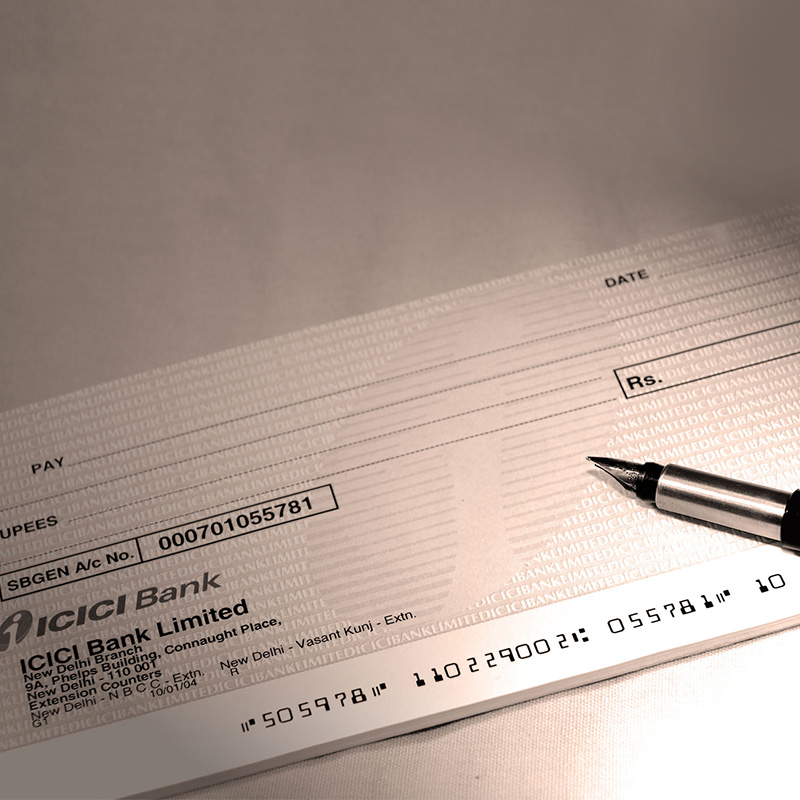BANKS’ LIABILITY FOR CHEQUE PAYMENT
Despite their golden age reaching the zenith during the second half of the 20th century, cheques are nevertheless present in the domestic system of payment and, along with the bills of exchange, represent one of the most widely used securities.
However, despite the decades of their market presence, distinctly strict formality and theoretical complexity of cheque relationship, in practice, leads to misunderstanding of obligations of the involved parties. Therefore, one of the primarily arising question is whether the bank (a drawee) is obliged to act in accordance with the order of its client (a drawer) and pay on demand of a legal bearer (a payee) the amount stated on the cheque.
Is there a legal obligation of the bank to pay the cheque on demand? Does the existence of coverage affect the obligation in any way?
Firstly, it is important to highlight a legal distinction between abstract and causal legal affairs. While the goal of binding parties is clearly visible in causal relations, the case is quite the opposite with the abstract ones. In fact, with abstract legal affairs only the arising obligation of parties is clear, but not the goal it serves. Therefore, the obligation of the involved parties is obvious, but not the reason of their obligation.
The most representative example of an abstract relation is, in fact, a cheque.
As its fundamental characteristic, cheque abstractiveness means that its validity is not dependent on the primary legal relation for which it was issued. Moreover, the existence of the primary legal relation does not affect cheques’ completeness in any way. Furthermore, cheques’ independence from the primary legal relation is made in pursuit of cheques’ efficiency, which, as an independent instrument, is not burdened with redundant facts, but rather serves its sole purpose as a payment instrument.
Therefore, when used as a payment instrument, e.g. for payment of goods in sale contract, legal right arising from a cheque is separate from a previous relation. In fact, completely new claim arises from the cheque. The claim that did not exist and which derives exclusively from the cheque itself. Eventual contractual obligation related to the cheque issuance is irrelevant for its validity.
Accordingly, cheque’s characteristics extend to the drawer’s coverage, as well. Considering the cheque’s independence from the primary legal matter, bank’s rights and obligations are exactly the same, regardless of the coverage existence.
Never, since their issuance, has there been the case that cheques are a promise to pay by the bank, but rather a drawer’s request to the bank that it pays, out of the deposited funds, an amount to a third party. Regardless the coverage, the bank does not have a legal obligation to honour the cheque, but only the freedom to do so. It may, therefore, without any legal consequences, reject covered cheque payment, just as freely as it may honour the uncovered cheque. In any case, the liability for the issued cheque lies with the drawer.
In practice, however, banks do honour most of the presented cheques, thus preserving their own and their client's reputation.
Naturally, the bank - client relationship is afterwards regulated, be it in a manner of the paid amount compensation or the client’s account debiting.
Contract between the bank and the client often stipulates bank’s obligation to pay the presented check on demand, after withdrawing the amount from the client's account. Nevertheless, given a cheque’s abstract nature, such provision does not change the fact that the bank has no legal obligation to honour the cheque. Hence, the only consequence would be the bank’s damage liability for the breach of contract.
Having in mind the aforementioned, it could be concluded that there is no legal obligation on the bank’s part to pay the cheque upon presentation. Given the payee has no relation with the bank, there is no legal way for a bearer to enforce the bank’s payment for the cheque in his possession. Notwithstanding the foregoing, the bank’s decision does not affect the primary relationship between the parties, thus the liability lies only with the drawer, against whom the bearer can initiate appropriate legal proceedings.
Author
Slobodan Zdravkovic, Lawyer


